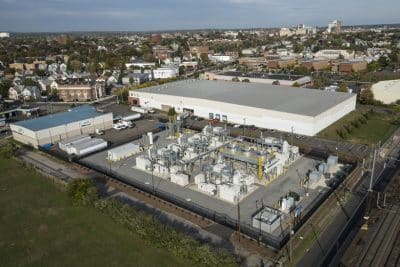Power purchase agreements are a central part of FuelCell Energy’s new corporate strategy. These agreements allow for long-term community purchases of electricity and energy. Not too long ago, the company concluded several contracts to that effect. One example is a 14.8-megawatt site in Derby, Connecticut. Meanwhile, it has been adding fuel cell power plants to its inventory as well, as it did last November when buying the Bridgeport fuel cell park from Dominion Energy. The 14.9-megawatt installation, for which the company is also the service provider, came with a price tag of USD 36.6 million and is being financed through USD 15 million of previously restricted cash, plus loans. FuelCell Energy (Nasdaq: FCEL) expects the park to generate a revenue of more than USD 15 million and an impressive EBITDA margin of over 50 percent.
In light of the above, the company’s stock price is a real head-scratcher. It dropped below USD 0.7, possibly as the result of an announcement by its South Korean partner, Posco, which said that it would end the projects on which it collaborated with FuelCell Energy in the red and sell its remaining 2.9 percent stake in the business. At first, it seemed like Posco had sold all its shares on the market or by private placement. Then, in October, Posco said it intended to abandon its fuel cell business but without presenting a timetable. The announcement leaves room for speculation about whether FuelCell Energy’s stock has traded so low because someone intends to get Posco’s share at a cheap price. I think the business may have already written off its investment a long time ago, so that it might accept any offer for sale. By contrast, there are those South Korean energy suppliers that have just started to invest in fuel cell power plants.
In short, all available data on cash reserves, credit facilities and backlog, as well as the company’s technologies, are in stark contrast to the current stock price. Do other market players know something is up or do they want to keep the price down for the time being? Have shares been sold based on convertible preferred stock? A high number of call options this month could be interpreted in more than way. I believe that the collaboration with Exxon will start to bear fruit this year. It has already led to pilot projects and prototypes, both of which form a solid foundation for further development. Let BlackRock, a fund that has bought additional FuelCell stock and now owns more than 5 percent of the company, be an example for others. Why shouldn’t it?
Risk warning
Share trading can result in a total loss of your investment. Consider spreading the risk as a sensible precaution. The fuel cell companies mentioned in this article are small and mid-cap ones, i.e., they may experience high stock volatility. This article is not to be taken as a recommendation of what shares to buy or sell – it comes without any explicit or implicit guarantee or warranty. All information is based on publicly available sources and the content of this article reflects the author’s opinion only. This article focuses on mid-term and long-term prospects and not short-term profit. The author may own shares in any of the companies mentioned in it.
Written by Sven Jösting


























0 Comments